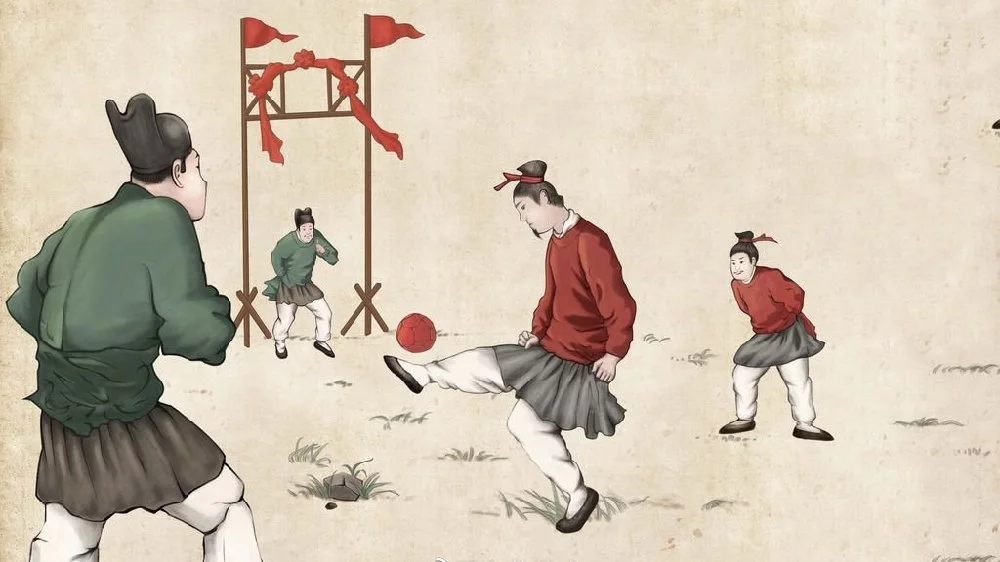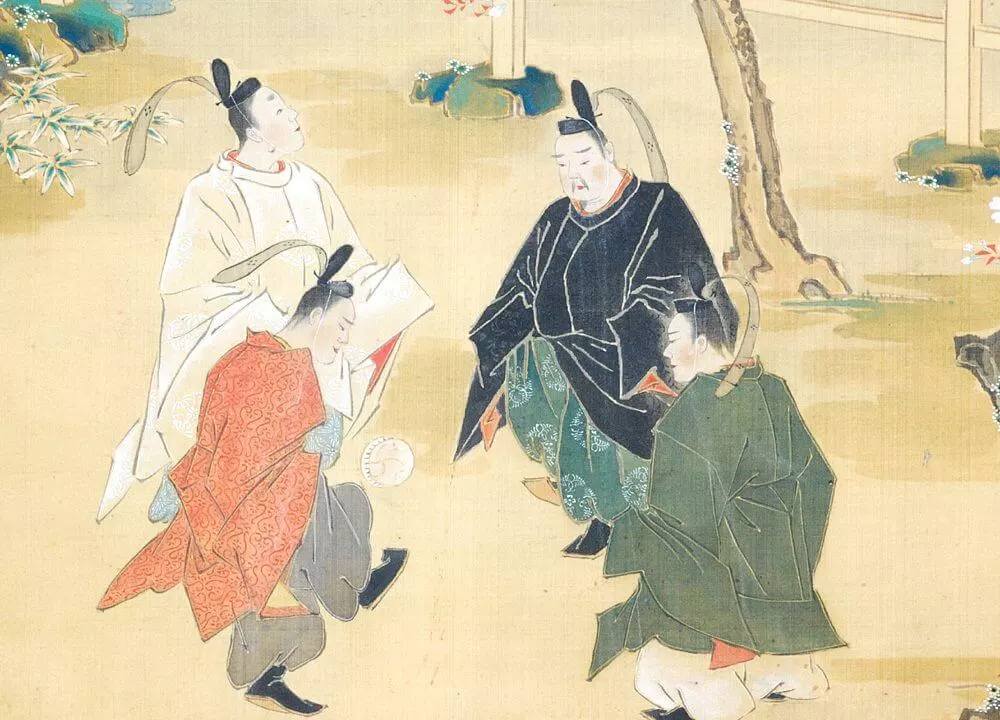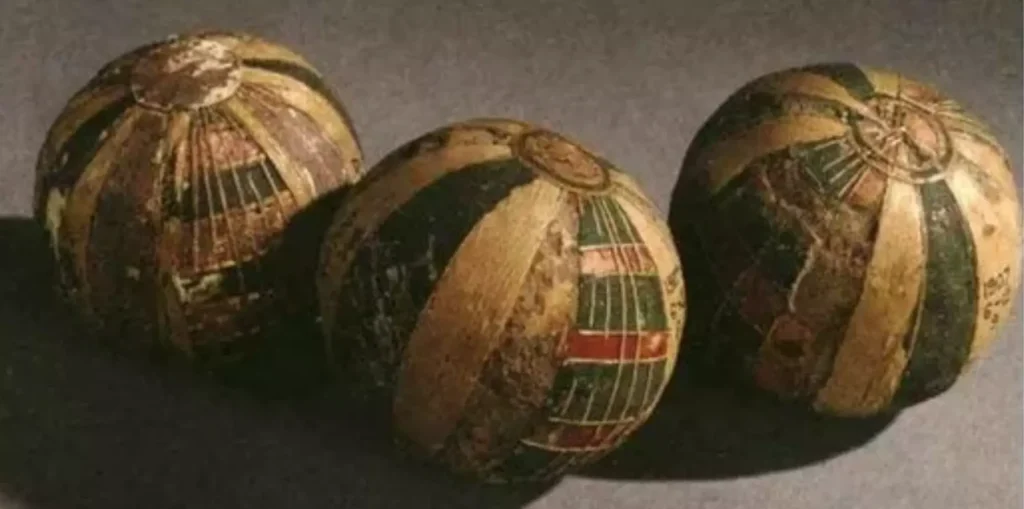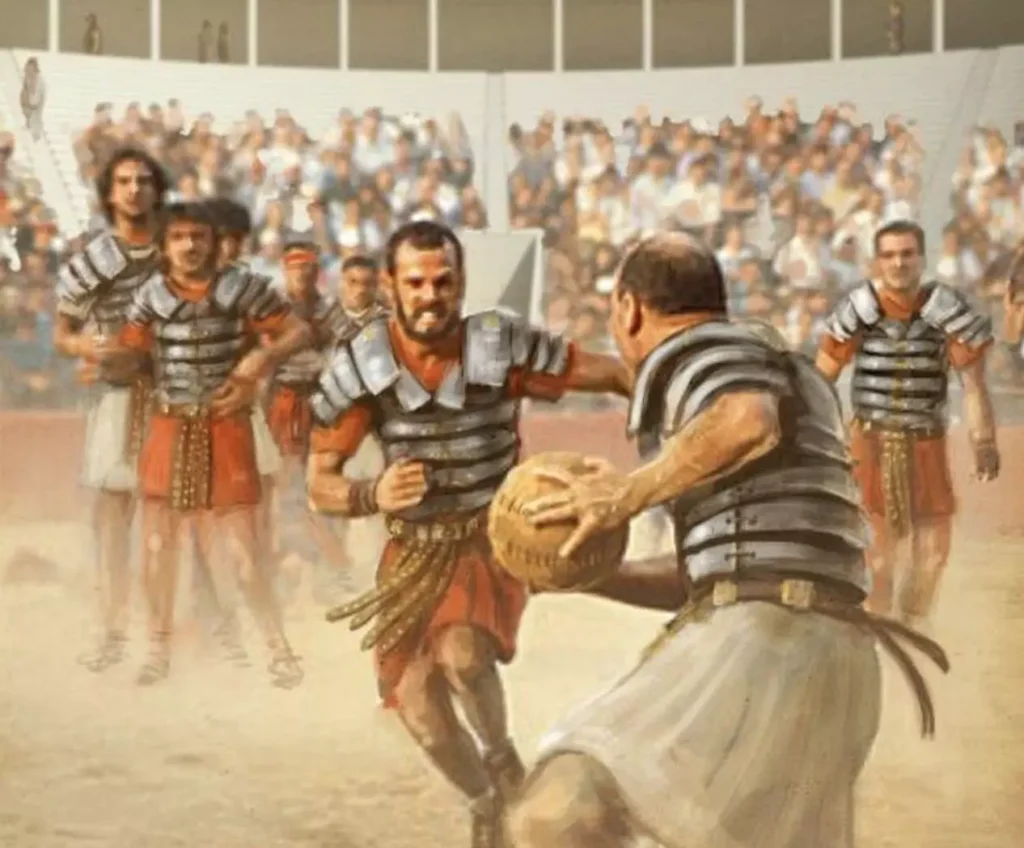The origins of football can be found in every corner of the globe. In the late nineteenth century, the English established the modern game, which evolved from many forerunners throughout history.
But where did this beloved game come from? In this blog post, we will delve into the origins of football and trace its history back to civilizations around the globe. From ancient Egypt to China, we will explore the early ball games that laid the foundation for the origins of football. So grab a ball and join us as we explore the rich history of football.
As early as 1800 BC, ball games were played in Egypt. There are, however, claims that ball games were played as early as 2500 BC in Ancient China. Evidence shows that ball games were associated with fertility rites and religious ceremonies in Egypt. In addition, there are records that indicate these ball games were sometimes used to till the soil, as they involved large numbers of people.
The Egyptians were not the only ones to play football games; the Greeks, Romans, and Chinese (among others) also played football games.
The Chinese And Tsu Chu
Approximately 255 – 206 BC is considered the earliest date for the invention of football by the Chinese. The dates involved are, however, subject to many opinions – some go back to 5000 BC when researching the origins of football.
During the Tsin Dynasty (255 – 206 BC), military manuals mentioned this game as Tsu Chu (sometimes spelled cuju). Tsu Chu was used as part of the physical training program for soldiers of the time. The game was played extensively during the Han Dynasty (206 BC – 220 CE).
With tsu meaning ‘kicking the ball with your feet’ and chu meaning ‘a leather and stuffed ball,’ Tsu Chu means football. For a term over 2000 years old, it is quite specific.
A net was strung between two bamboo poles that were 30 feet tall with a 30-40 cm hole in the middle. The game was challenging to play. ‘Scoring’ requires a ball to pass through the net’s hole. Since they were not allowed to use their hands, players were skillful and almost considered artists or performers.
Tsu Chu was played to commemorate the Emperor’s birthday – perhaps this is the first example of an exhibition match! According to a Han Dynasty military manual, Tsu Chu required a ‘zuqui’ (football). It was made of stuffed leather panels and roughly stitched leather panels the size of a volleyball.
Although many considered Tsu Chu to be the earliest forerunner of football, it did not directly influence the game as we know it today. Therefore, to find out the origin of football, we must look elsewhere.
The Japanese And Kemari
Kemari is said to have been invented by the Japanese slightly later than the Chinese. However, several hundred years after Kemari was first recorded, some form of the game likely existed before then.
A recently discovered text states that Japanese Kemari players and Chinese Tsu Chu players played a game in approximately 50 CE. If true, this would drastically change the date of the origins of football and mark the first recognized international match.
Kemari is a keepy-uppy game. A deerskin ball was stuffed with sawdust and played with. It had a diameter of about 8 inches and was kicked between players.
Researchers believe Marco Polo (1254 – 1324) discovered Kemari and brought it back to Europe as a precursor to football. However, it is impossible to give Marco Polo credit for discovering the origin of football since it was already in Europe then.
The Greeks And Their Games
Very little is known about Greek ball games and how they influenced modern-day soccer. However, Episkyros is said to have been played in Greece as far back as 800 BC.
As one of the basic rules, using your hands was permitted, which suggests that it has more in common with rugby than football. However, despite this, there are many similarities between the game and modern football, particularly in the dimensions of the pitch and the number of players.
It has been claimed that Harpastron is another Greek ball game that predates the origins of football. However, Harpastron is not the word for football, but for handball in Greek.
Greeks were renowned for their intellect, so it is hard to believe that they would name one of their games so foolishly. We will thus include Harpastron with Episkyros as it is more like rugby than football.
Nevertheless, the most significant contribution made by the Greeks to the game of football was the development of Harpastum by the Romans. Additionally, they added the crucial ingredient of kicking. As a result, many consider Harpastum to be an early precursor to modern football.
The Romans And Harpastum
It isn’t easy to date the introduction of Harpastum, but since the Romans conquered Greece in 146 BCE, it is reasonable to assume that they discovered the Greek versions of the games shortly after that.
To improve the physical fitness of the Roman Army, Julius Caesar and his generals used Harpastum as a form of military training. The field of play was rectangular and smaller than an average-sized football pitch today. As well as being extremely fast and physical, Harpastum was also quite violent and allowed tackling.
Football is a beloved sport played by millions of people worldwide, but where did it all begin? The origins of football can be traced back to civilizations around the globe, including ancient Egypt, Greece, Rome, and China.
These early ball games were the foundation for the modern game we know today, which was established in England in the late nineteenth century. From its beginnings as a physical education program in ancient China to its current status as one of the most popular sports in the world, the history of football is rich and fascinating.
As the game continues to evolve and spread to new countries and cultures, its global reach and popularity show no signs of slowing down. So next time you kick a ball around with friends or watch a professional football match, remember the origins of football’s long and storied history.









